October 07, (THEWILL) – Since Nigeria gained independence on October 1, 1960, through despotic military regimes to democratic administrations, a number of vociferous individuals have kept the faith in championing the cause of a better Nigeria.
The journey to democracy has no doubt been marked by twists and turns, with civil, human rights activism playing a pivotal role in shaping the country’s political landscape. The tumultuous years of military rule made these individuals relentlessly and tirelessly push for justice, equality, and accountability. Their voices were a beacon of hope and their unwavering commitment to justice inspired several other activists.
Despite significant progress being made of uninterrupted democratic experience, the country still confronts numerous human rights challenges, occasioned by endemic corruption and rising insecurity. Still basking in the euphoria of Nigeria’s 64th independence anniversary, Ivory Ukonu shines the spotlight on some of those bold, audacious and brazen names synonymous with the struggle for a better country.
Ken Saro-Wiwa
Kenule Saro-Wiwa was a writer, businessman and environmental activist best remembered for his famous quote, “I tell you this, I may be dead, but my ideas will not die.” Even though he became an activist towards the end of his life, he always believed in one Nigeria and was proud to be a Nigerian. He stood against ethnic undertones. He wanted to help create a country where all Nigerians have equal access to state support. His poems, books and other works, such as his long-running satirical TV series ‘Basi & Co’ simply told the story of Nigerians being Nigerians. It was impossible to tell which ethnicity any of the characters on the TV drama series were.
In 1990, years after serving as the civilian administrator for Bonny Camp during the Nigerian Civil War, Saro-Wiwa started to dedicate himself to the amelioration of the problems of the oil producing regions of the Niger Delta. He focused on his homeland of Ogoni, a minority ethnic group; and launched the Movement for the Survival of the Ogoni People (MOSOP), to campaign for social, economic, and environmental justice in the Niger Delta of Nigeria.
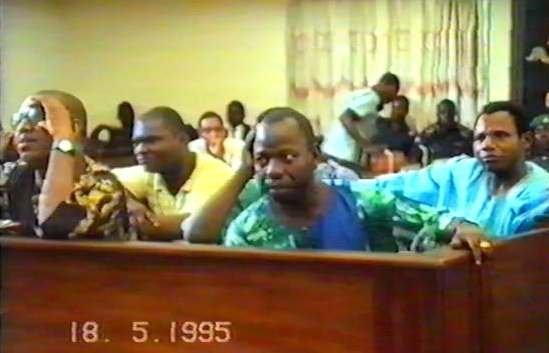
He spoke out against the Nigerian military regime and the Anglo-Dutch petroleum company, Shell, for causing environmental damage to the land of the Ogoni people in his native Rivers State.
Despite various campaigns by the military government, Saro-Wiwa stayed resilient in pursuing his mission and as a result of mounting protest, Shell suspended operations in Ogoniland in 1993. He was executed on November 15, 1995, along with eight other members of MOSOP, after the military regime of late General Sani Abacha found them guilty, via a secret trial, of the murder of four Ogoni elders during a political rally. Later known as the ‘Ogoni Nine’, the accused denied the allegations, insisting they were being framed. Nigeria was suspended from the Commonwealth the day after the execution, following international condemnation of the executions. The country didn’t return to the Commonwealth fold until May 1999 when it returned to civilian rule.
Gani Fawehinmi
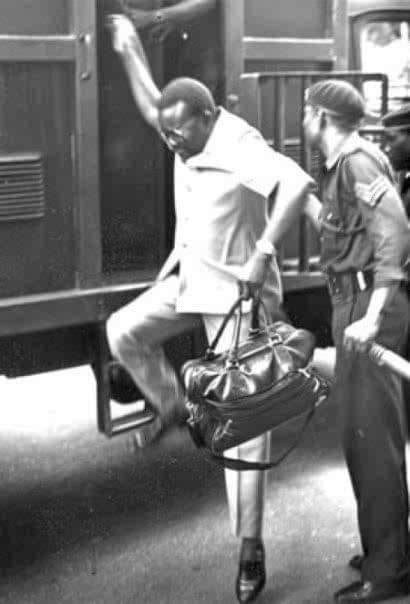
Although human rights lawyer, activist and a former presidential candidate, Abdulganiyu Oyesola Fawehinmi desired to become a successful lawyer, it was until he started practising that he soon realised that he also wanted to affect the lives of everyday Nigerians and leave a legacy of impact. And he did exactly that. Often representing those who couldn’t afford his services, Fawehinmi quickly became known as ‘the people’s lawyer,’ taking on a great number of pro bono cases over the course of his career.
Fawehinmi played the role of human rights campaigner for 40 years, constantly provoking military rulers and defending their victims. His brushes with the authorities earned him frequent detentions and beatings. His passport was confiscated several times and on one occasion his books were seized and his library set on fire. He believed in media freedom, contributed avidly to newspapers and often took on journalists’ cases. Most notable of these was the still unsolved case of Dele Giwa, a magazine editor killed by a parcel bomb in 1986.
Fawehinmi sought to re-open the Dele Giwa case and called on the then attorney-general of the federation to be removed for his indifference to corruption. He spoke vehemently against each successive government that assumed power either by rigging elections or by military usurpation and publicly condemned looting, brigandage, perversion of values, ethnic politicisation, insensitivity, spurious economic and financial maladjustments in government circles. For this, in 2008, he rejected one of the highest national honours that can be bestowed on a citizen by the Nigerian government – Order of the Federal Republic (OFR) – in protest of the many years of misrule since Nigeria’s independence. He felt he could effect change on a much larger scale and decided to contest for the number one office of the land in 2003 on the platform of the National Conscience Party of Nigeria. His dream didn’t come to fruition. He died a disappointed man in 2009 after a long battle with cancer, still resilient as ever over the state of Nigeria.
Funmilayo Ransome-Kuti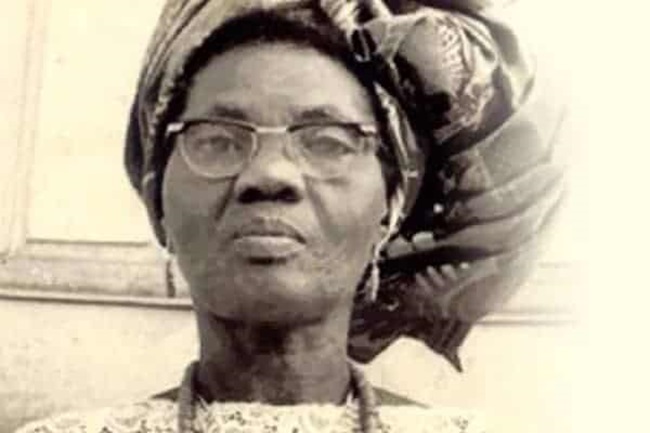
There are a few women in Nigerian history who are as commanding or accomplished as Funmilayo Ransome-Kuti, a women’s rights activist and pioneer African feminist who was fondly referred to as the ‘Lioness of Lisabi.’ She was part of delegations SENT to discuss the proposed national constitution. Her contributions to Nigerian society as a feminist and women’s rights activist are immense and present to this day. In the 1940s, she co-founded the Abeokuta Women’s Union, AWU, which led a women’s protest against colonial taxation in 1946 and consequently, the abdication of the Alake of Egbaland, the traditional ruler of Abeokuta.
The AWU later recorded membership of some 20,000 local women, later going national as the Nigerian Women’s Union. But that was just the beginning. Funmilayo also co-founded the Nigeria Union of Teachers (NUT) with her husband, Reverend Israel Oludotun Ransome-Kuti. Her influence extended into the political sphere as a founding member of the National Council of Nigeria and the Cameroons Party (NCNC), one of the leading political forces in Nigeria’s fight for Independence. She also became the first woman appointed to the Western House of Chiefs, marking a groundbreaking moment for women in Nigerian politics. She established many schools around Southern Nigeria and constantly remained a resilient force for women’s rights throughout her life. She died from coma complications in 1978 after soldiers threw her from the second floor of her son Fela’s Lagos home during a 1977 raid.
Fela Anikulapo-Kuti
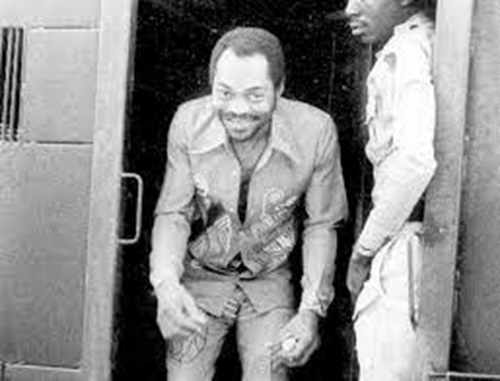
An advocate of peace and happiness, musician and activist, Fela Aniukulapo-Kuti was not only famous as a musician, he used words as a form of protest and resistance and also as a means of reflecting and commenting on political events. As he rose to prominence throughout the 1970s, he caused a change in the relation between music as an art form and Nigerian socio-political discourse.
Fela performed three times a week at his Afrika Shrine club from Friday to Sunday, with the Friday show, dubbed the ‘Yabis Night,’ drawing the largest crowds. On ‘Yabis Nights,’ he would diligently point out a new government effort, typically a different effort each week, highlight its failings and then break into his legendary free-flowing Afrobeat. Due to his opposing views, he was routinely arrested and beaten, with soldiers frequently conducting raids on his Lagos based home cum entertainment centre which he named the Kalakuta Republic. In 1977 soldiers raided the Kalakuta Republic under the pretext of an anti-drug operation, burning several houses and beating up occupants.
When his mother, Funmilayo Ransome-Kuti died from complications of a fall after been thrown down from the second story of one of the buildings by the military, Fela put her body in a coffin and took it to the gates of Dodan Barracks in Lagos, which was the seat of power in the military regime at that time, in an incredible act of defiance. He was a blunt supporter of human rights, and many of his songs were direct attacks against dictatorships, specifically the military governments of Nigeria in the 1970s and 1980s. He was also a social commentator, and often criticised Africans, especially the upper class for betraying traditional African culture. Since his death in 1997, Kuti’s legacy lives on and has birthed a new generation of activists who idolise his resilience in fighting the tyranny of the system.
Beko Ransome-Kuti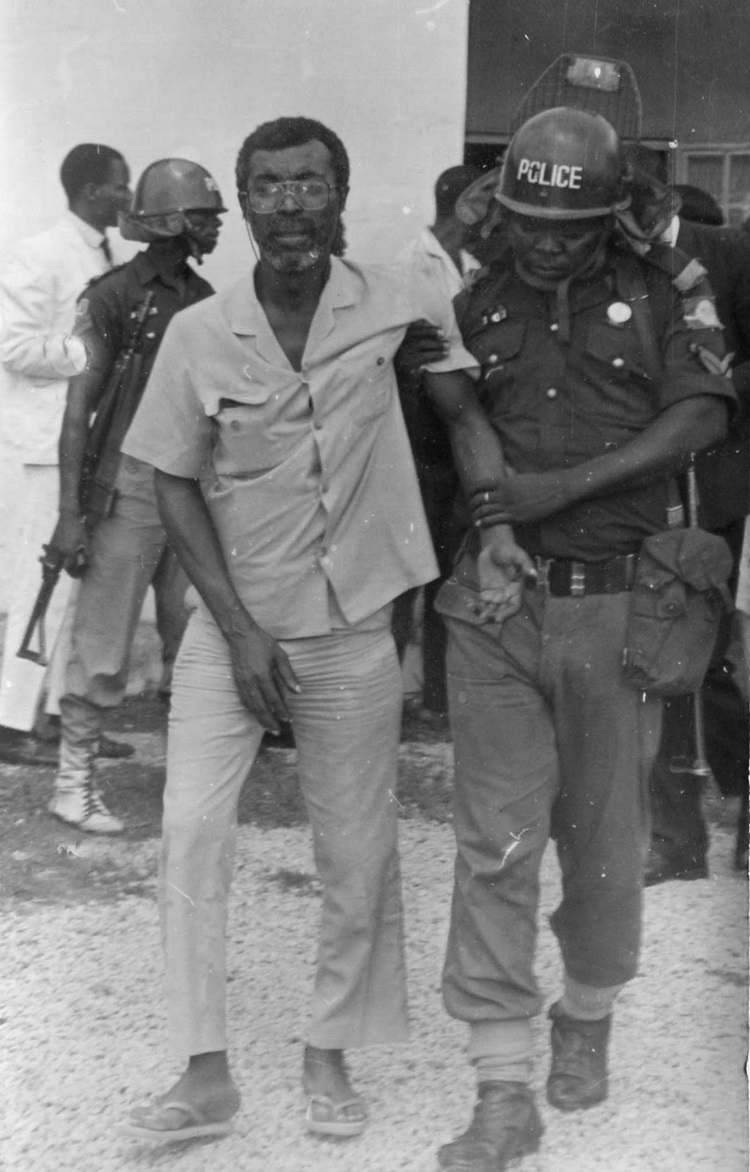
Although he was a medical doctor, he was like his mother, Funmilayo Ransome-Kuti and his brother, Fela Anikulapo-Kuti, deep into activism. He was also a human rights campaigner and one of Africa’s bravest freedom fighters. His quiet determination to confront arbitrary rule and grand corruption led to his jailing by a succession of military regimes.
The charges against him were usually trumped-up variants of sedition. The most ludicrous charges included, but not limited to faxing defendants’ statements to persons unknown, trying to manage an unmanageable society, amongst others. Both charges earned him a double life sentence under the military regime of late dictator, General Sani Abacha in 1995. One of the defendants whose statements Beko was alleged to have faxed was former president Olusegun Obasanjo, who had been accused of coup plotting by Abacha. Tried in a kangaroo court, Beko was thereafter incarcerated.
After Abacha’s death, he went fully into grassroots activism. Softly spoken, modest and with a total lack of interest in material status, Ransome-Kuti contradicted clumsy stereotypes of Nigerians. Beko threw himself into organising Nigeria’s doctors in the Nigerian Medical Association, NMA, his immediate constituency and trying to raise the standards of public health care. That led him into conflict with both civilian and military regimes. In 1984, the military regime under former General Muhammadu Buhari introduced State Security Decree 2, allowing the military rulers to detain indefinitely anyone they declared to be a threat to national security. Within a year, the Buhari regime had banned the medical association and jailed Beko. This was the beginning of the medical flight of Nigeria’s medical personnel. On his release, Beko appalled by the tens of thousands of Nigerians detained indefinitely without charge, joined with a group of lawyers to set up the Committee for the Defence of Human Rights in 1989.
After relentless protests, the committee secured the release of thousands of innocents but usually desperately poor prisoners. His clinic in Lagos became the headquarters for one of Nigeria’s leading civil rights movements – the Campaign for Democracy – calling for the military to give way to an elected government. Crowded with Nigerians seeking help, the clinic doubled as a legal advice bureau. He was a board member of the Commonwealth Human Rights Initiative along and he would often press the organisation to take a more critical stance towards member states. Under former General Ibrahim Babangida’s regime there was pressure from within its own ranks as well as millions of frustrated Nigerians who were opposed to military rule.
Beko and fellow activists started demanding a national conference to reform the federal constitution at which Nigeria’s 300-odd ethnic groups would be represented. They protested around the country, urging the soldiers to stand down. This was too much for the Babangida regime, which sent 200 soldiers to arrest Beko. He was eventually freed. He remained undeterred and continued to be a trenchant critic of both military and civil regimes in Nigeria until his death. His last years were spent organising the Centre for Constitutional Governance, whose aim was to help citizens hold the government to account at all levels and to fight corruption. But years of solitary confinement, ill-treatment and denial of medication took their toll on his health.
Elizabeth Adekogbe
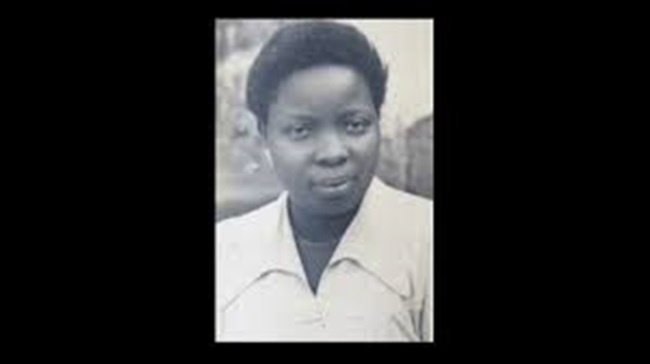
Elizabeth Adekogbe a nationalist, journalist, teacher, and staunch activist, was the founder and leader of the Women’s Movement of Nigeria, an organization which championed for the rights of women in political, social, and economic spaces and National Council of Women Society, a dominant pressure group and a leading women’s coalition in Nigeria. She worked hand in hand with Funmilayo Ransome-Kuti and several other pioneering women towards Nigeria’s independence struggle.
Adekogbe dedicated her life to creating opportunities for women in political spaces. One of the many things she fought for was women’s suffrage and the allocation of seats for women in legislature. Adekogbe frequently wrote articles focused on women’s issues.
Yinka Odumakin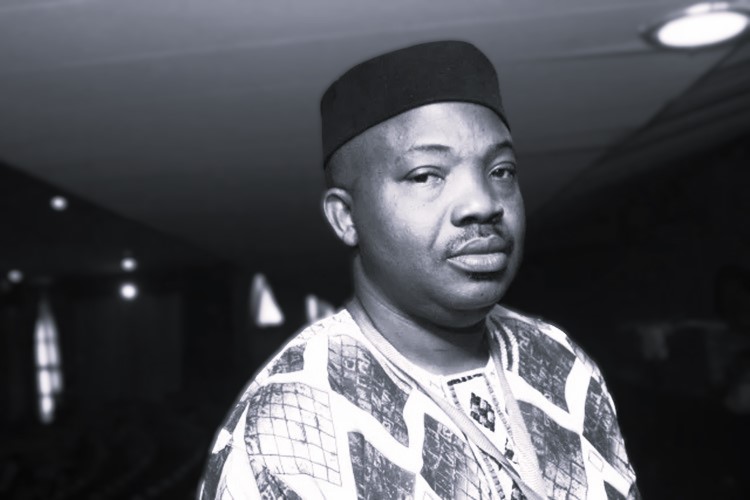
Until his death, human rights activist, Yinka Odumakin, was the national publicity secretary of Afenifere, a Pan-Yoruba socio-cultural group. He also played a key role in the National Democratic Coalition (NADECO) that fought the government of Sani Abacha after the annulment of the 1993 Nigerian presidential election. He was among the spokespersons of the Southern and Middle Belt Leader’s Forum (SMBLF).
Despite being a spokesman of former president Muhammadu Buhari when he contested the 2011 Nigerian presidential election under the defunct Congress for Progressive Change, he was also a strong critic of Buhari’s government during his second coming and an even stronger one of President Bola Tinubu, long before he took a shot at the presidency. Odumakin was a courageous and principled man who was never afraid to express his views on any issue during his lifetime without fear of consequences. He died from respiratory issues due to complications resulting from COVID-19 at Lagos State University Teaching Hospital on 3 April 2021.
Ayodele Awojobi
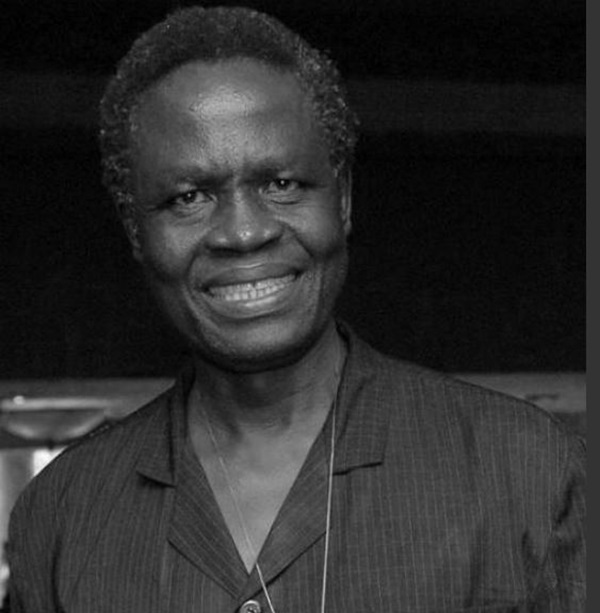
Ayodele Oluwatumininu Awojobi also known by the nicknames – Dead Easy, The Akoka Giant and Macbeth, was an academic, author, inventor, social crusader and activist. He was considered a scholarly genius as his research papers, particularly in the field of vibration, are still cited by international research fellows in Engineering and are archived by such publishers as the Royal Society. He became an activist in the wake of the presidential election results that returned the incumbent, Shehu Shagari as president in the Second Republic. He became very vocal in the national newspapers and magazines, going as far as suing the Federal Government of Nigeria for what he strongly believed was widespread election rigging.
With all his court cases against the federal government thrown out of court, he delved into the law books, himself being only a mechanical engineer, claiming that he would earn his law degrees in record time, to enable him to better argue with the opposition at the federal courts. He used the universities as a bastion, going from campus to campus to make speeches at student-rallies, hoping to sensitise them to what he perceived as the ills of a corrupt government. Awojobi authored several political books over the course of his ideological struggles against a corrupt Federal Government.
Hajia Gambo Sawaba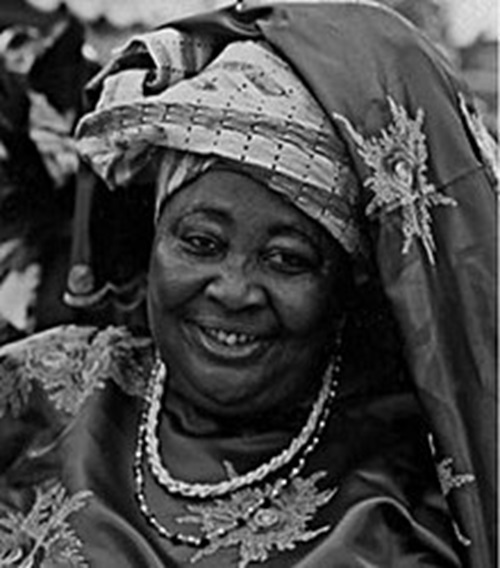
Fearless and unrelenting, Hajia Gambo Sawaba stood as a voice for the oppressed, challenging societal norms and defying injustice. Her activism against child marriage, forced labour, and oppressive taxes saw her imprisoned a staggering 16 times, earning her a place in history as one of the most jailed women in Nigeria. At just 17, Sawaba entered the political arena, becoming the Great Nigeria People’s Party (GNPP) deputy chairman and leading the Northern Element Progressive Union (NEPU) women’s wing. Her work focused on advocating for women’s education and political participation, forever altering the landscape of women’s rights in Nigeria.






